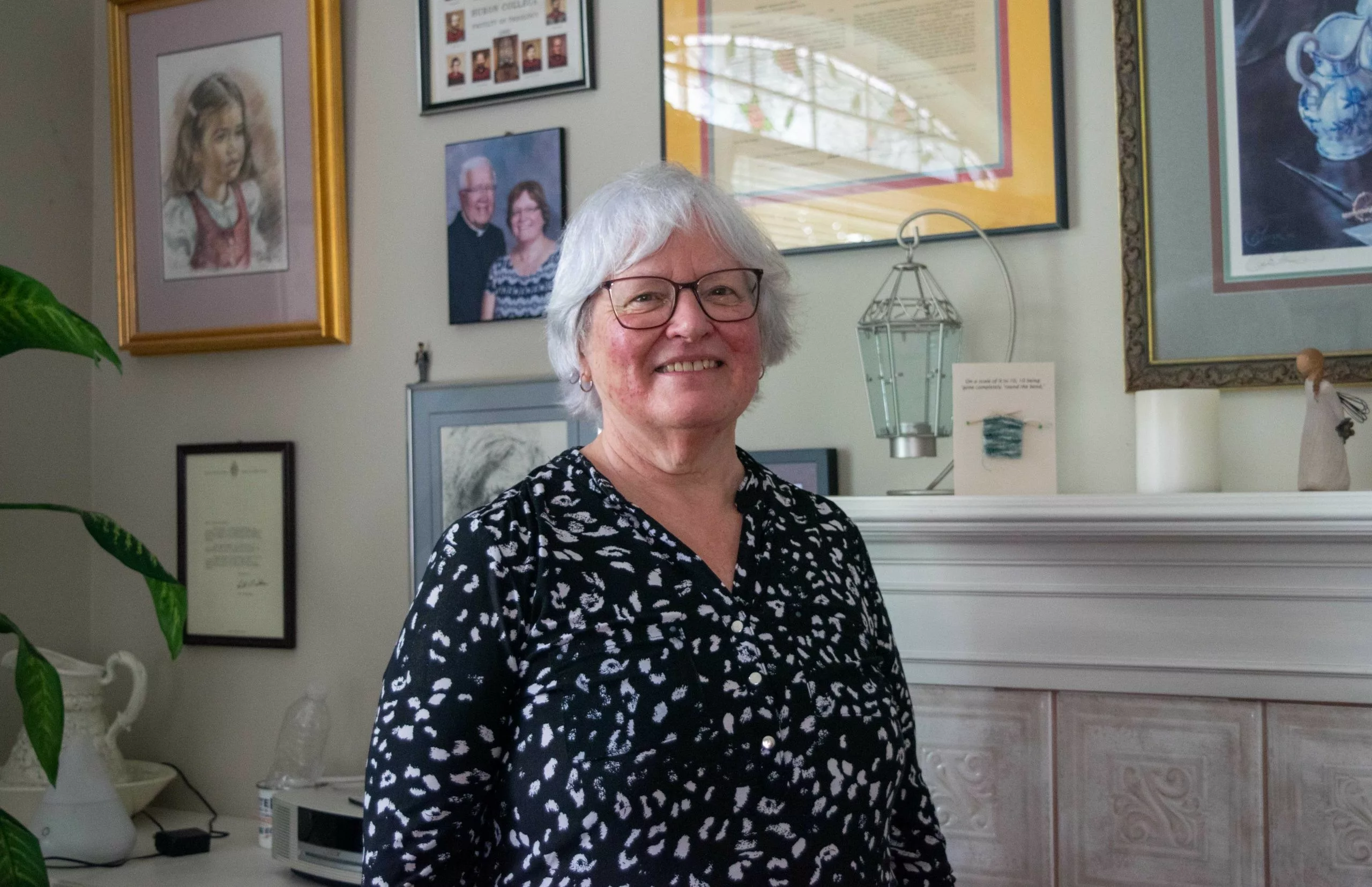Suzanne Baldwin shares her struggles as a caregiver for her husband
Article content
GODERICH – As the annual IG Wealth Management Walk for Alzheimer’s approaches, the Alzheimer Society of Huron Perth is highlighting local stories of dementia and the experiences of people living with it.
Advertisement 2
Story continues below
Article content
For the Goderich walk on May 25, Suzanne Baldwin and her family are being recognized as this year’s honorary family.
Article content
Baldwin, a retired schoolteacher, moved to the Goderich area in 1987 with her husband, Peter, who served as the rector at St. George’s Anglican Church until his retirement.
The couple met through Suzanne’s tutoring when she was teaching at the Salvation Army House of Concord outside of London, where Peter had been working as a social worker. They eventually got married in 1974 and recently celebrated their 50th anniversary with their family.
But this past January, their lives changed when Peter was diagnosed with Alzheimer’s disease after a difficult stay in the hospital brought on by a fall, leaving Suzanne as his primary caregiver in their Goderich home.
Advertisement 3
Story continues below
Article content
“This Alzheimer’s, it just complicates everything,” she said. “It’s asking ‘how am I going to find a path through this?’ It becomes kind of awkward, and sometimes it’s just way too much.”
Baldwin described the challenges of day-to-day life where she’s had to find ways of caring for her husband, coming up with creative strategies for avoiding injury in their home, such as marking where the floor’s level varies. She said Peter can, at times, act like her shadow around the home and is often worried if she’s not in the same room as him.
“It’s like having a kid,” she said. “It’s heartbreaking to go through it. I guess I fear for the future. I try to go day by day.”
As the Baldwins grapple with the challenges brought on by Alzheimer’s disease, they’ve found that some of the resources available to them have been limited due to changes brought on by the COVID-19 pandemic.
Advertisement 4
Story continues below
Article content
Family support counsellor Randy Chapman of the Alzheimer Society said respite care is one of the most critical services for caregivers to access, but the COVID-19 pandemic saw a major reduction in its availability across Ontario, often leaving caregivers with the choice of more costly in-home care options or to not seek respite care at all. This is especially true for caregivers in rural communities, Chapman noted.
“All of the respite just disappeared, and with it, the nurses and personal support workers you need to run respite,” said Chapman. “It’s just pretty much non-existent right now, but you have to book months out and you have to drag them there because it’s in all of the big centres. But everybody’s wanting that same piece of the pie.”
Advertisement 5
Story continues below
Article content
For Baldwin, the importance of quick access to respite care is emphasized as she hopes to spend time with her son, Anthony, who lives hours away from Goderich near Port Dover and has been diagnosed with a brain tumour.
Since she has been caring for her husband and hasn’t been able to access respite care, Baldwin has struggled to find time for other things. She said she feels “stuck” while caring for her husband and simultaneously wanting to visit her son.
“He has the same cancer that Gord Downie from The Tragically Hip had,” she said. “He lasted 14 months. My son is at six months, now.”
“I’d love to be down there,” she added, “but how do I manage that?”
Baldwin is one of many Canadians living as a caregiver for the more than 733,000 people living with dementia across Canada — a figure that is expected to rise to nearly one million by 2030 as the baby boomer generation ages.
Advertisement 6
Story continues below
Article content
According to the Alzheimer Society, the number of care partners for individuals living with dementia, which is defined as family members, neighbours and friends in an unpaid care role, is expected to rise to more than one-million people by 2050.
Nearly half of caregivers for seniors living with dementia show symptoms of distress, highlighting the importance of support for those caregivers.
Since her husband’s diagnosis, Baldwin has been accessing services and programs offered by the Alzheimer Society, though she first connected with the organization while seeking information as her mother lives with progressing dementia. She’s been able to continue to access educational materials and sessions while also dealing directly with the Alzheimer Society through individuals such as Chapman.
Advertisement 7
Story continues below
Article content
“They’ve been very helpful,” she said. “It’s amazing what can be covered in an hour or two hours.
Chapman said being a caregiver can be taxing. He noted how caregivers can become burned out and tired as they care for their loved ones, and that the Alzheimer Society tries to be there to help those who are struggling.
“When you’re mentally tired, you’re physically done, too,” he said. “For the caregivers, if their person’s up through the night, they’re up with them. The caregiving responsibilities never end. That’s where we try and be of some support at the Society.”
For more information about the Alzheimer Society Huron Perth and the services they provide, visit www.alzheimer.ca/huronperth.
Article content








Comments